Blog

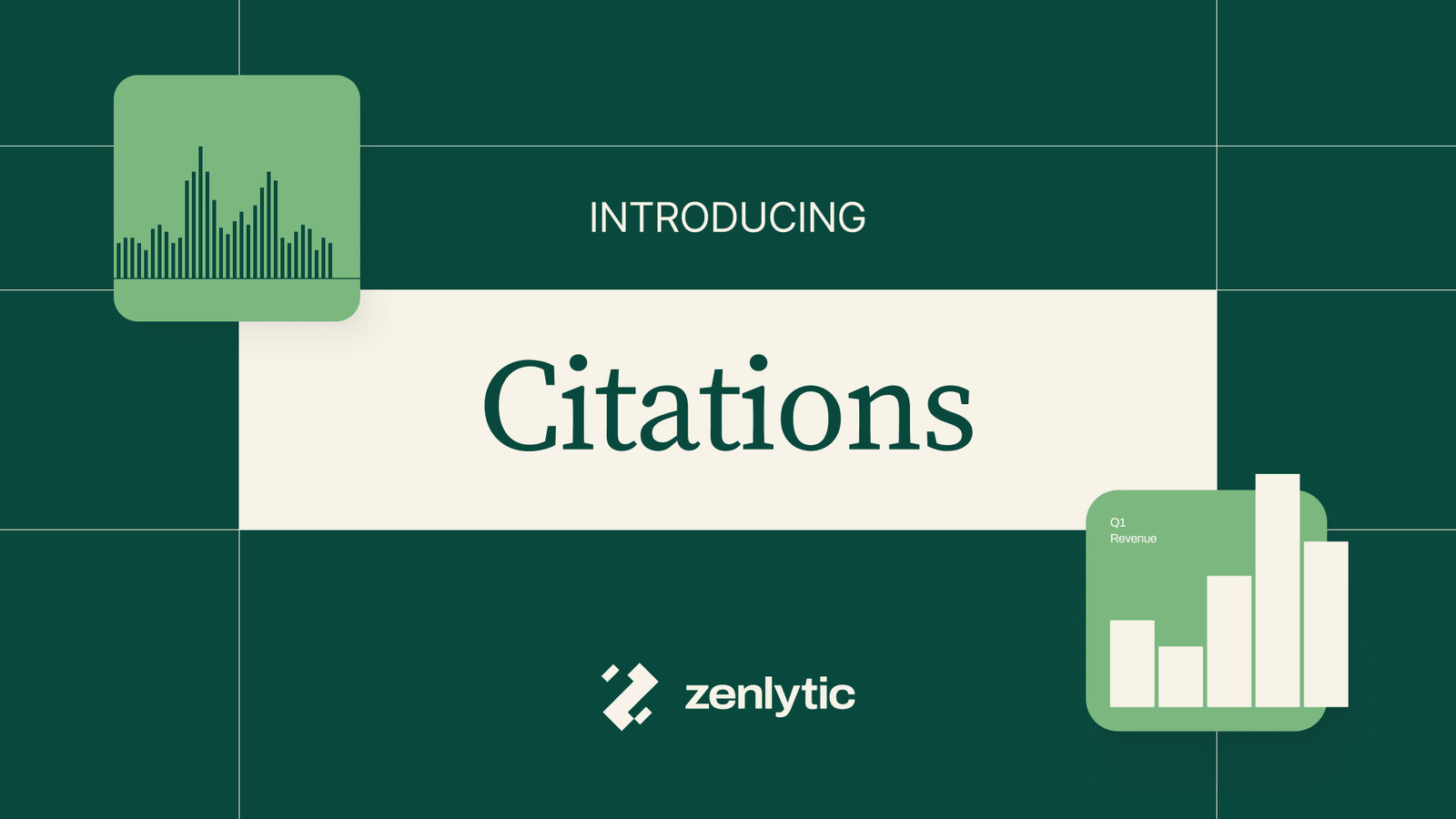
Introducing Citations: AI Data You Can Trust
Most AI chatbots generate numbers fast—but without trust, they’re useless. Zoë, the AI data analyst from Zenlytic, changes that with Citations. Every metric and summary Zoë produces is backed by real data sources, giving teams full transparency, explainability, and confidence in every insight. Finally, an AI you can trust.
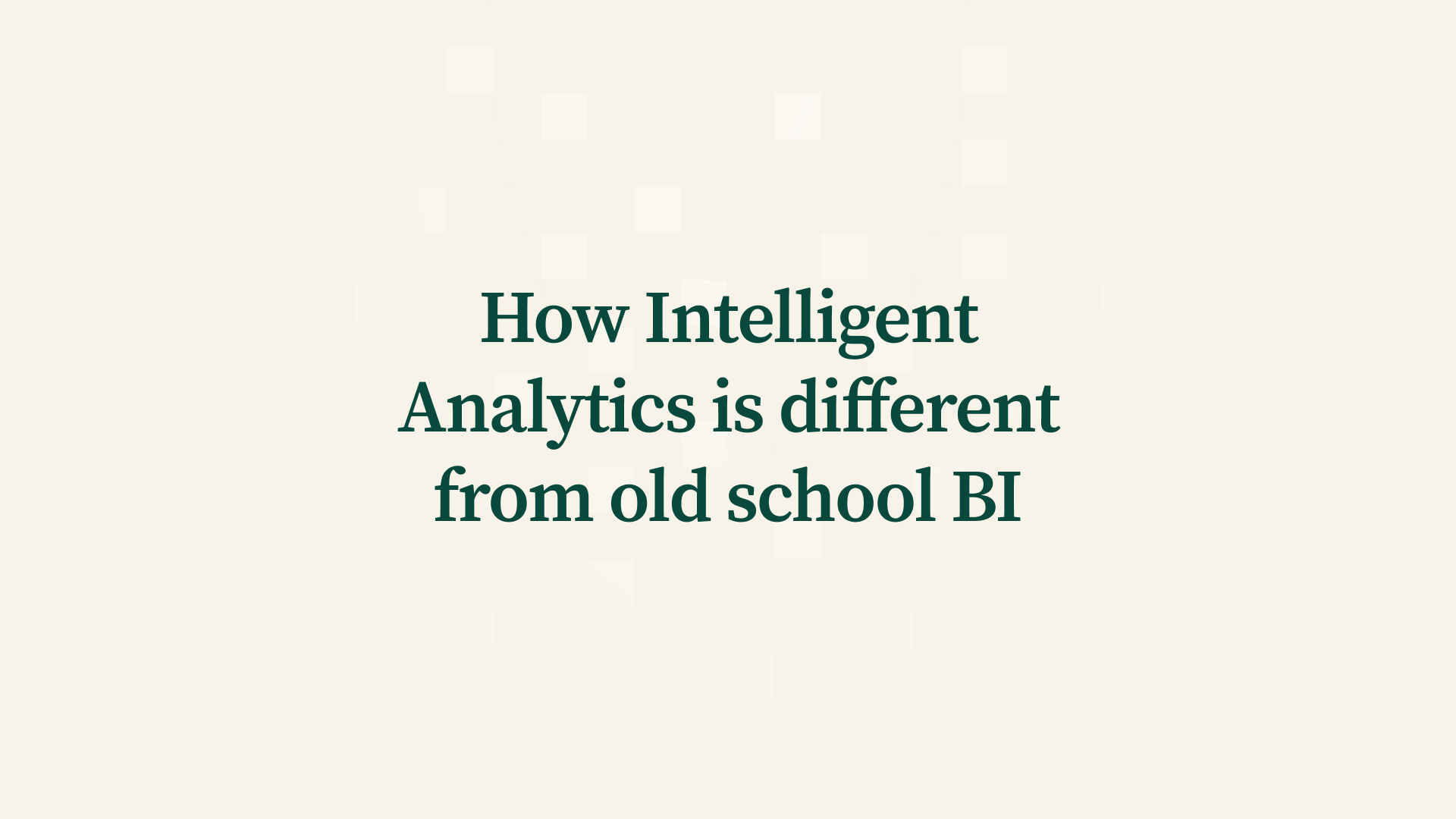
How Intelligent Analytics is different from old school BI
Intelligent analytics is a radical leap beyond legacy BI. Instead of isolated queries and rigid dashboards, modern analytics platforms deliver trusted, deep insights via natural language, unified datasets, and AI-driven context. Zenlytic’s platform blends trust, depth, and the concept of an AI data coworker, enabling business users (not just analysts) to ask “why” and “what if” across campaigns, data sets, and business scenarios. With intelligent analytics, you don’t just see what happened you understand what’s actually going on and what to do next.
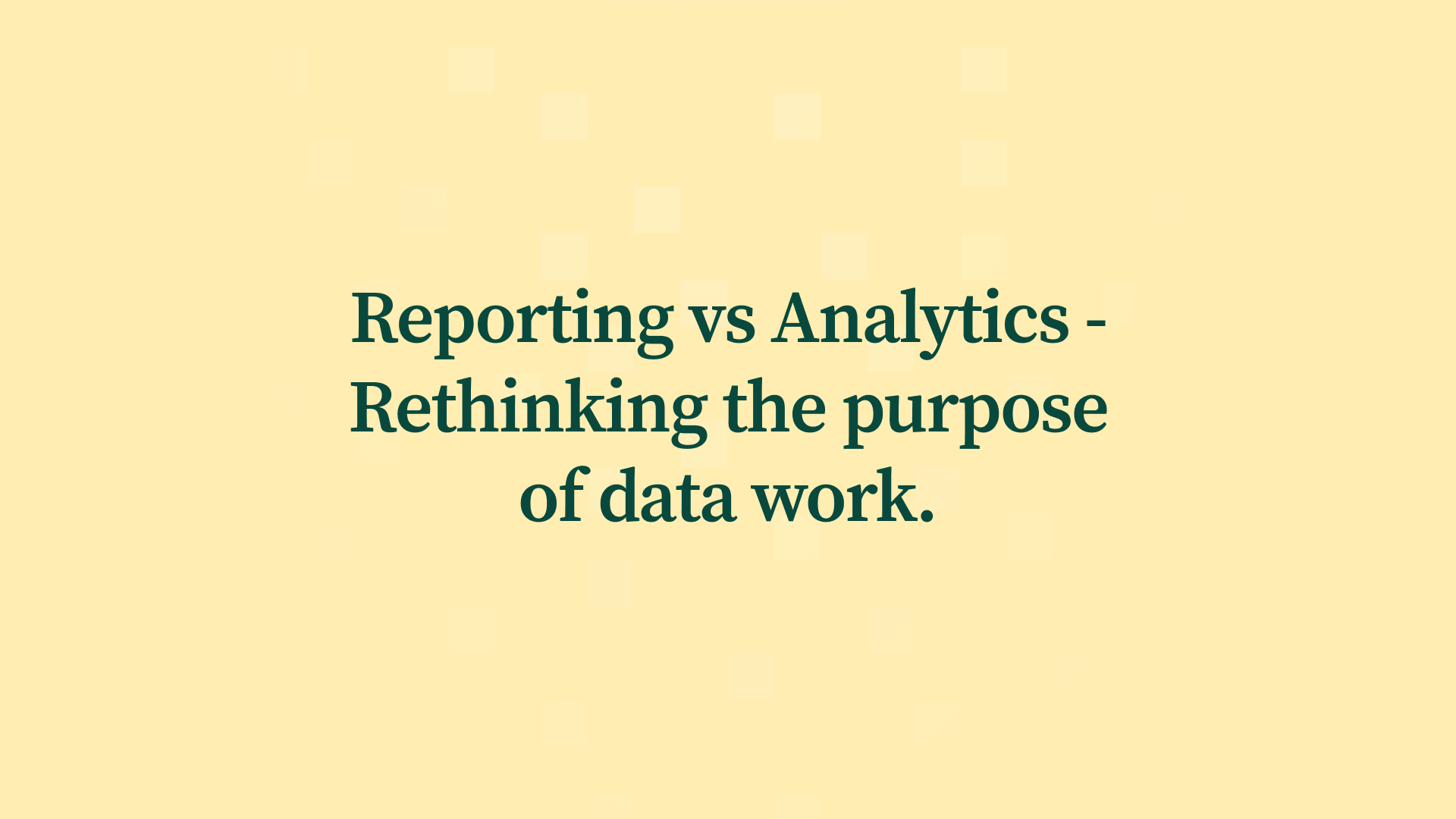
Reporting vs Analytics
In many organizations, teams are drowning in dashboards but starving for insights. Static reporting tells you what happened, while modern analytics reveals why it happened and guides what to do next. At Zenlytic, we believe the right approach turns data into a strategic asset.
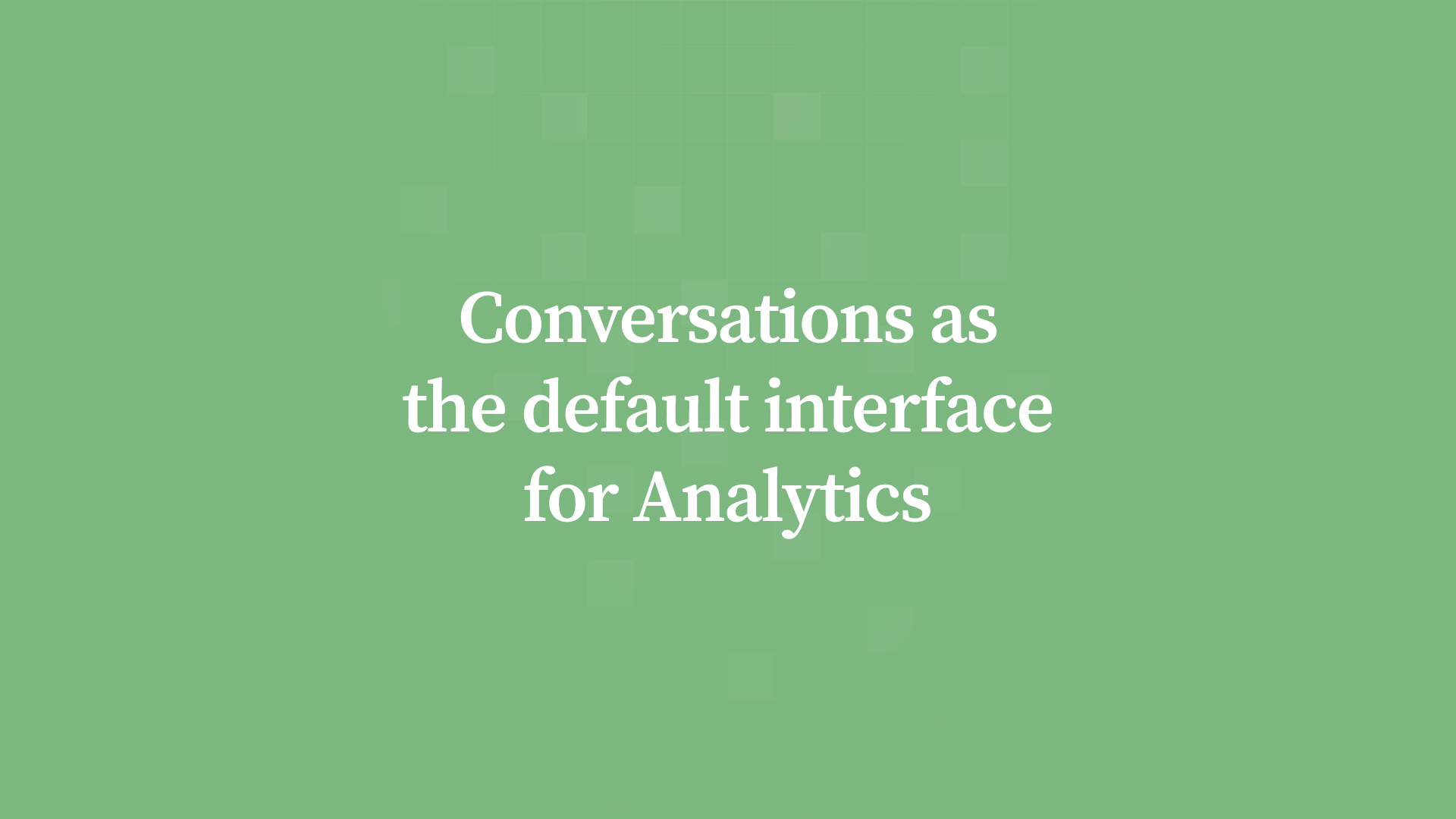
How AI Conversational Interfaces Are Revolutionizing Self-Service Analytics
Conversational AI is transforming the future of data analytics and business intelligence by replacing dashboards with dialogue. Instead of waiting on data teams, users can now ask questions in plain English and receive instant, accurate insights - thanks to AI tools for data analysis, predictive analytics, and no-code self-service BI platforms. This post explores how AI-powered self-service analytics democratizes data access, compares self-service BI vs traditional BI, and highlights the most effective use of AI in enterprise analytics. Learn how generative AI and AI agents for data analysis make analytics faster, more innovative, and accessible to everyone — even non-technical users.
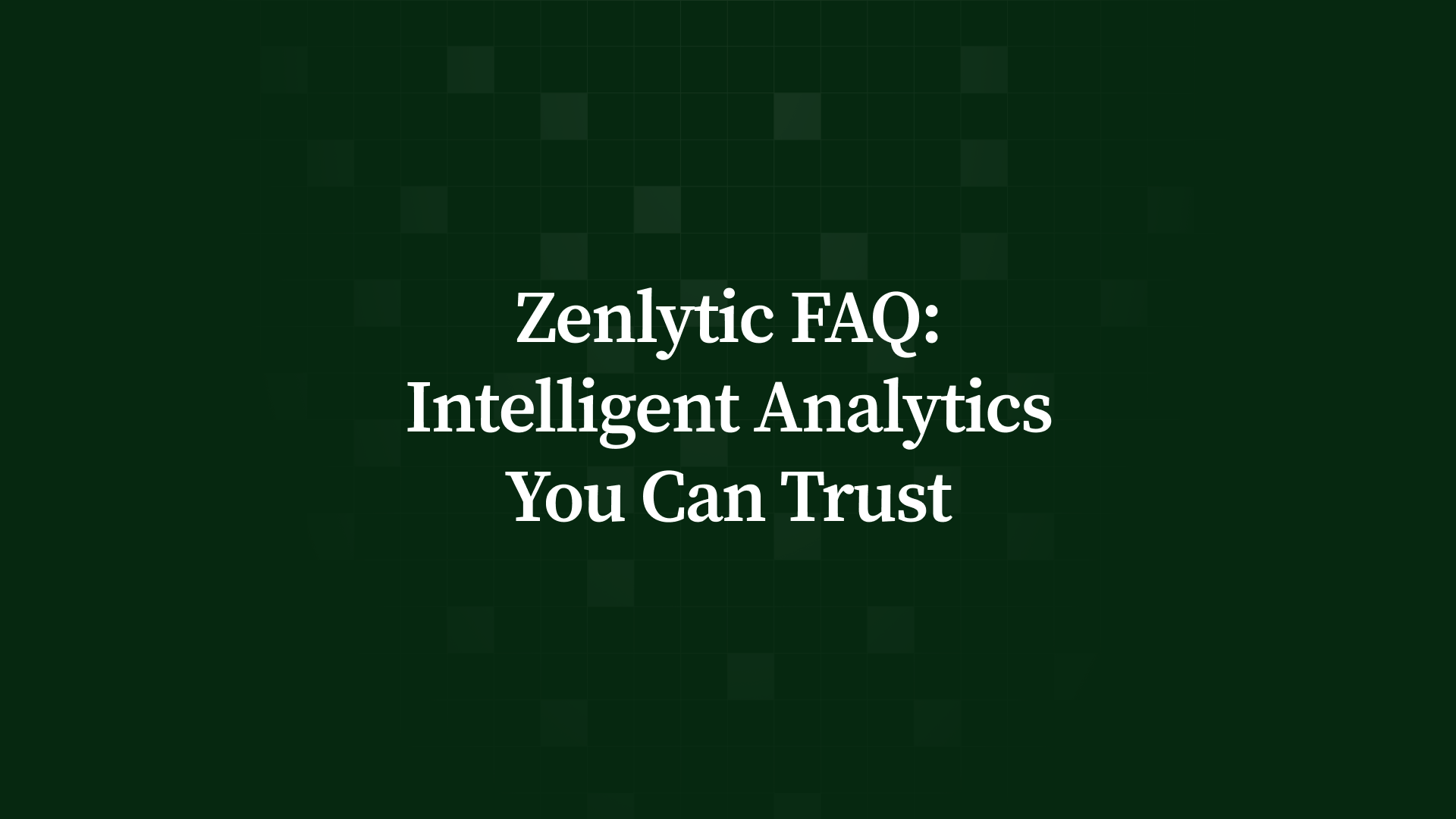
Zenlytic FAQ: Intelligent Analytics You Can Trust
Zenlytic is your trusted AI data coworker, delivering transparent, explainable analytics with real depth. Built for trust, governance, and clarity, Zenlytic turns AI into a reliable partner for confident, data-driven decisions. Here are some frequently asked questions, with answers. Part 1.
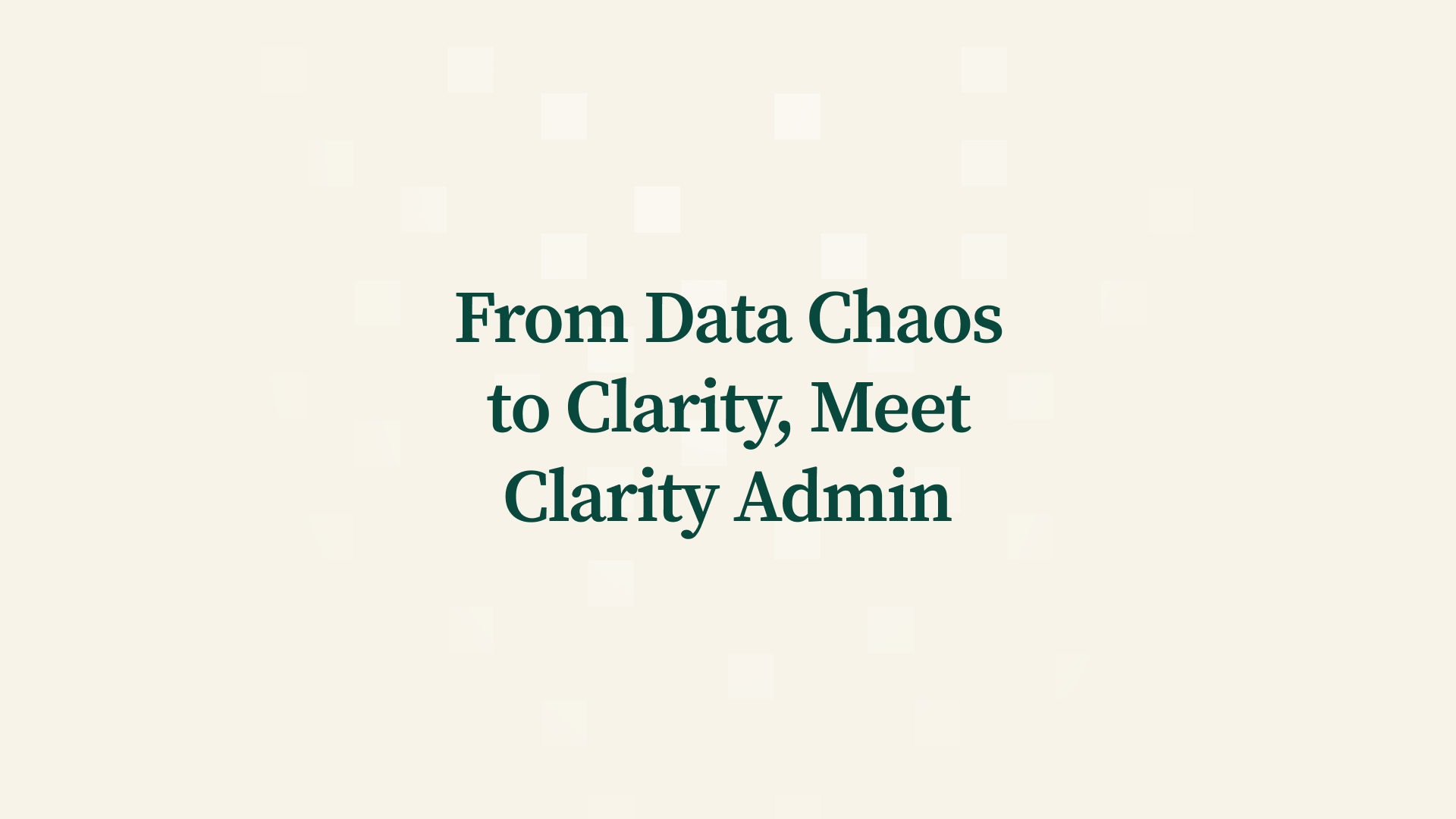
From Data Chaos to Clarity, Meet Clarity Admin
Zenlytic’s Dynamic Fields Admin Panel, powered by the Clarity Engine, shows exactly what concepts users are asking Zoë about — and how often. When users request metrics or fields that don’t yet exist, those ideas are captured automatically, so data teams can review, refine, and promote the most valuable ones into the company’s standardized data model.
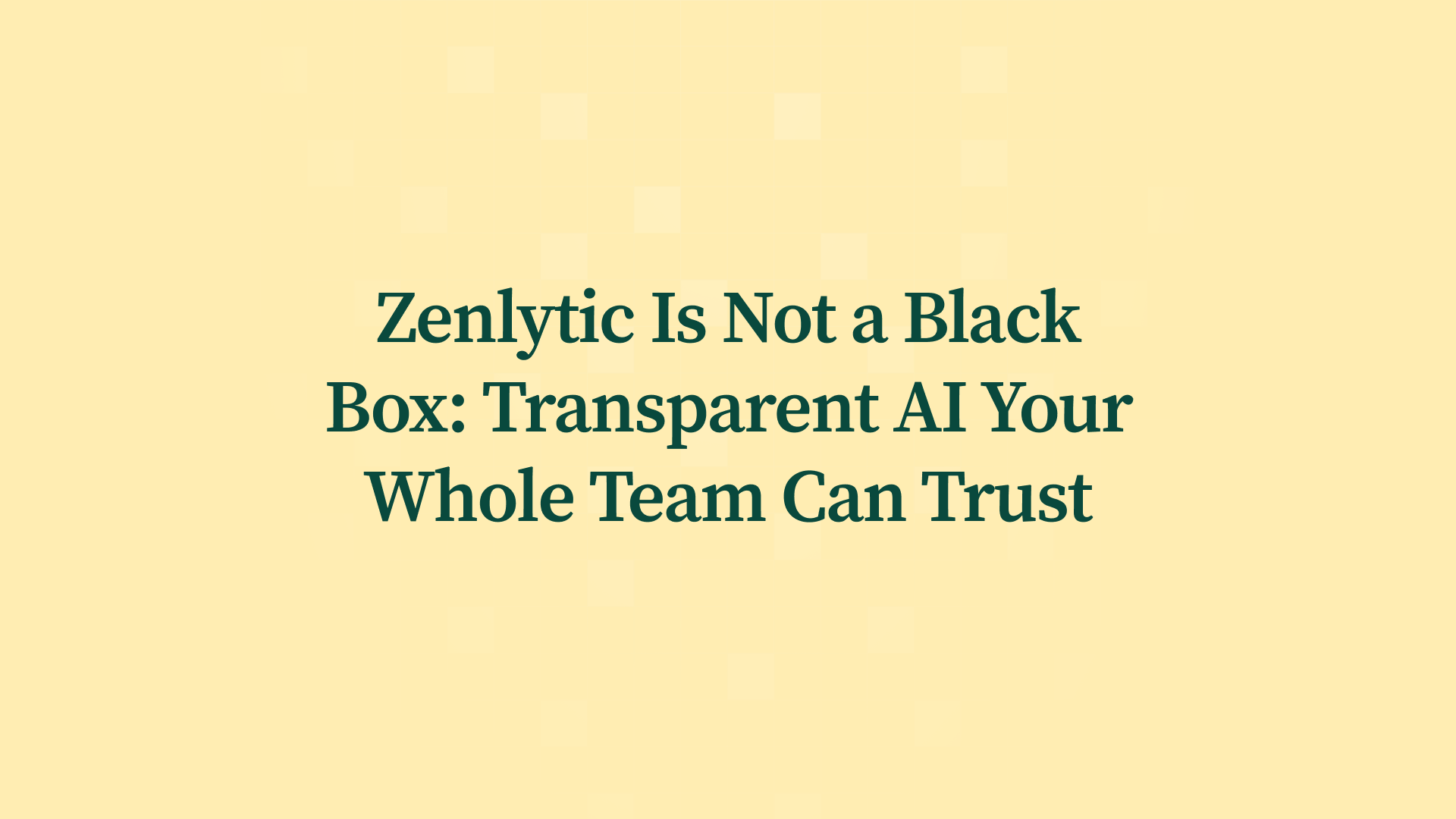
Zenlytic Is Not a Black Box: Transparent AI Your Whole Team Can Trust
This post promotes Zenlytic, a transparent AI analytics platform that solves the common “black box” problem in generative AI. It emphasizes explainability, governance, and trust — showing how Zenlytic provides clear logic, traceable lineage, and warehouse-first accuracy while remaining easy for non-technical users.

Hot Take: The Companies That Will Dominate Tomorrow Aren’t Building Dashboards
Dashboards are outdated. The future of business intelligence is real-time conversations with data. Learn how Zenlytic’s AI data analyst replaces dashboards with strategy.

Why Semantic Layers Aren’t as Safe as You Think
Semantic layers promise consistency but limit flexibility and trust. Zenlytic’s Clarity Engine takes a different approach, combining explainability and transparency so teams can explore data with confidence.

Why AI Analysts Don’t Fail at SQL, They Fail at Trust
The biggest challenge in AI analytics isn’t SQL or charts—it’s trust. Zenlytic’s Zoë solves the black box problem with explainability and consistency, transforming AI from a novelty into a true data analyst teams can rely on.

Why Explainability Is the Key to Trusting AI in Data Analytics
Explainability is the foundation of trust in AI analytics. With Zenlytic’s Clarity Engine, Zoë combines flexibility with transparency, providing SQL-backed explainable metrics that teams can trust for real-world decisions.
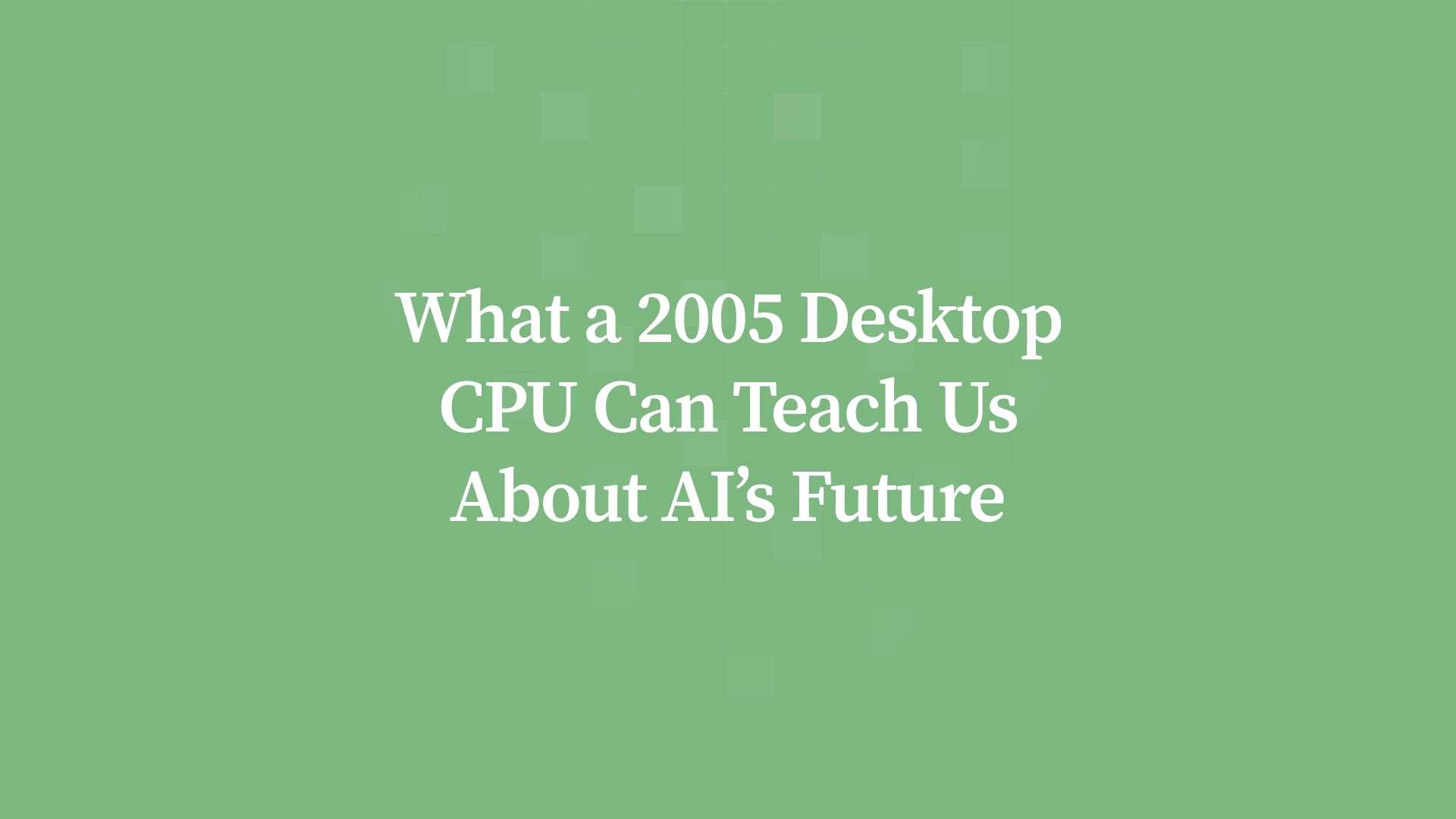
What a 2005 Desktop CPU Can Teach Us About AI’s Future
What can CPU history teach us about AI? Just as multi-core processors revived computing after Dennard scaling, AI will evolve beyond today’s limits. Zenlytic delivers the reliability businesses need now, with Zoë, the AI data analyst who never lies
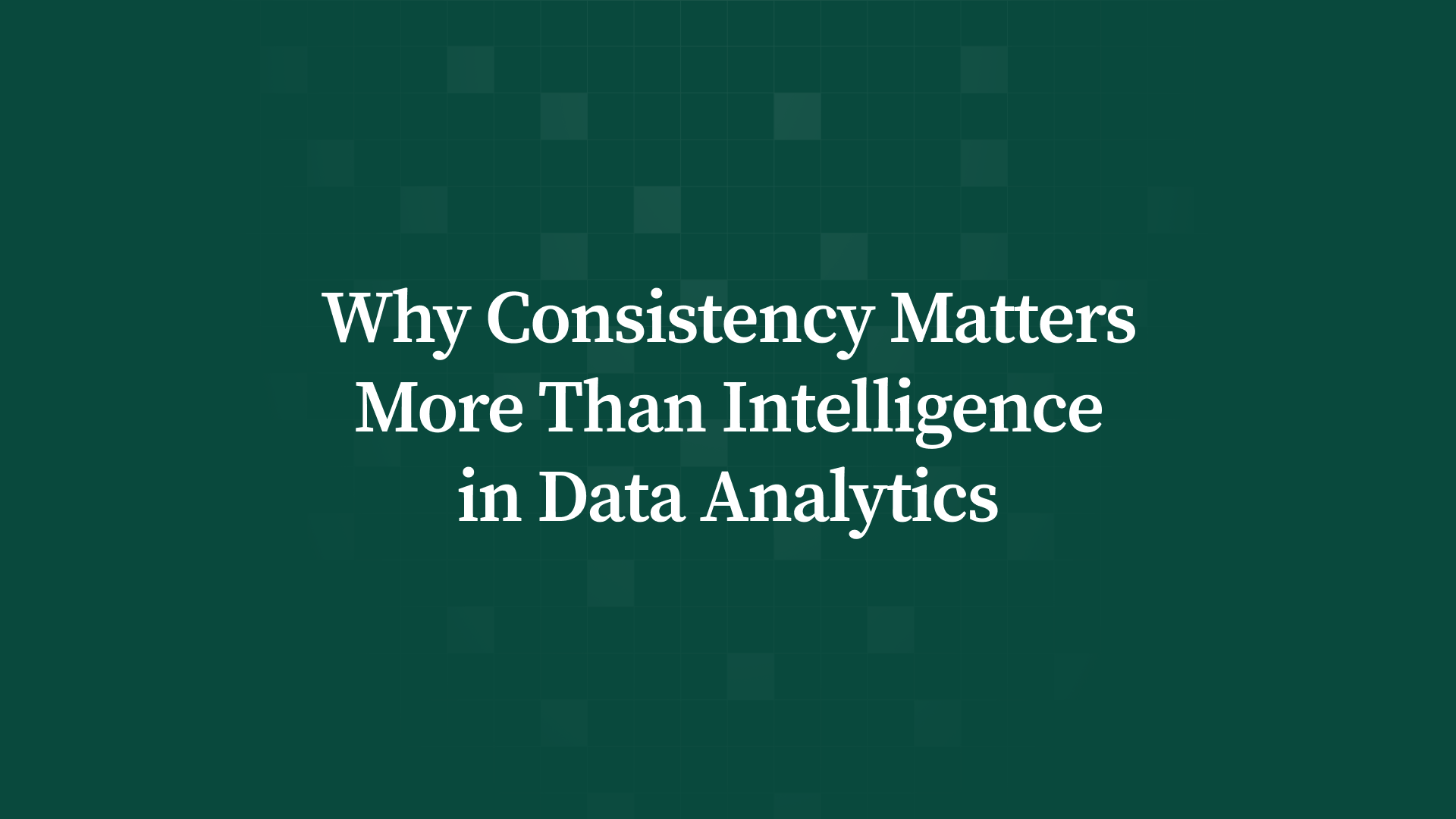
Why Consistency Matters More Than Intelligence in Data Analytics
Consistency matters more than intelligence in data analytics. While LLMs often produce inconsistent answers, Zenlytic’s Clarity Engine with Memories ensures reliable, repeatable insights so businesses can trust their AI data analyst.
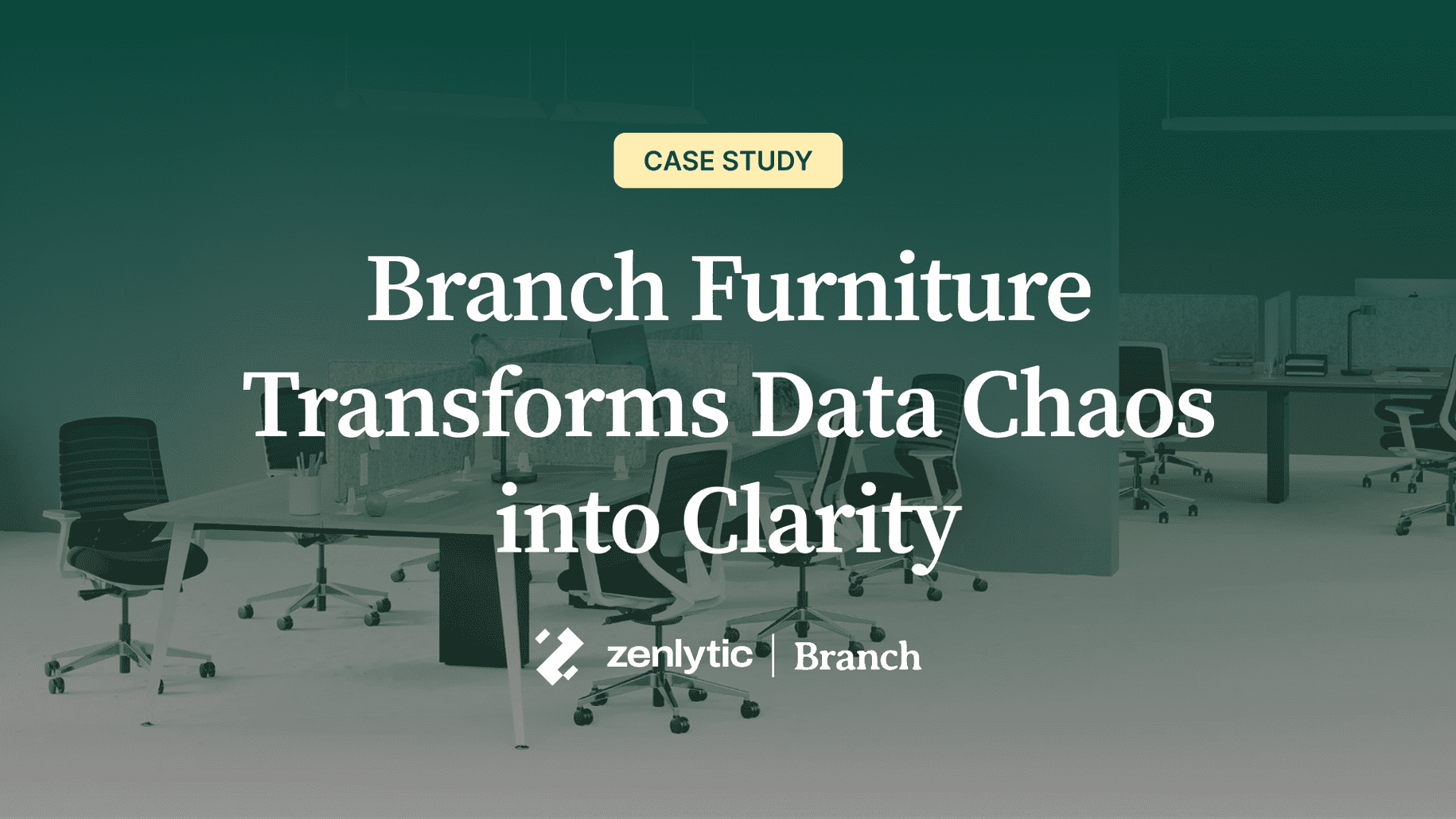
How Branch Furniture Transformed Data Chaos into Clarity with Zenlytic
In today’s fast-paced, data-driven economy, the companies that win are those that make decisions quickly and confidently. But for many growing businesses, data chaos stands in the way. That was the reality for Branch Furniture, a rising star in the furniture industry, until they partnered with Zenlytic, the AI-powered business intelligence platform designed for the modern data stack.

Tired of LLMs Giving Different Answers to the Same Question? Meet Memories: The End of Inconsistent Analytics
LLMs are powerful for analytics, but their biggest flaw is inconsistency—teams often get different answers to the same question. Zoë solves this with Memories, which lets you lock in definitions and methodologies with a single click. From then on, every teammate gets the same, consistent answer every time. No more re-explaining or second-guessing—just clarity that compounds as Zoë learns and grows with your team.
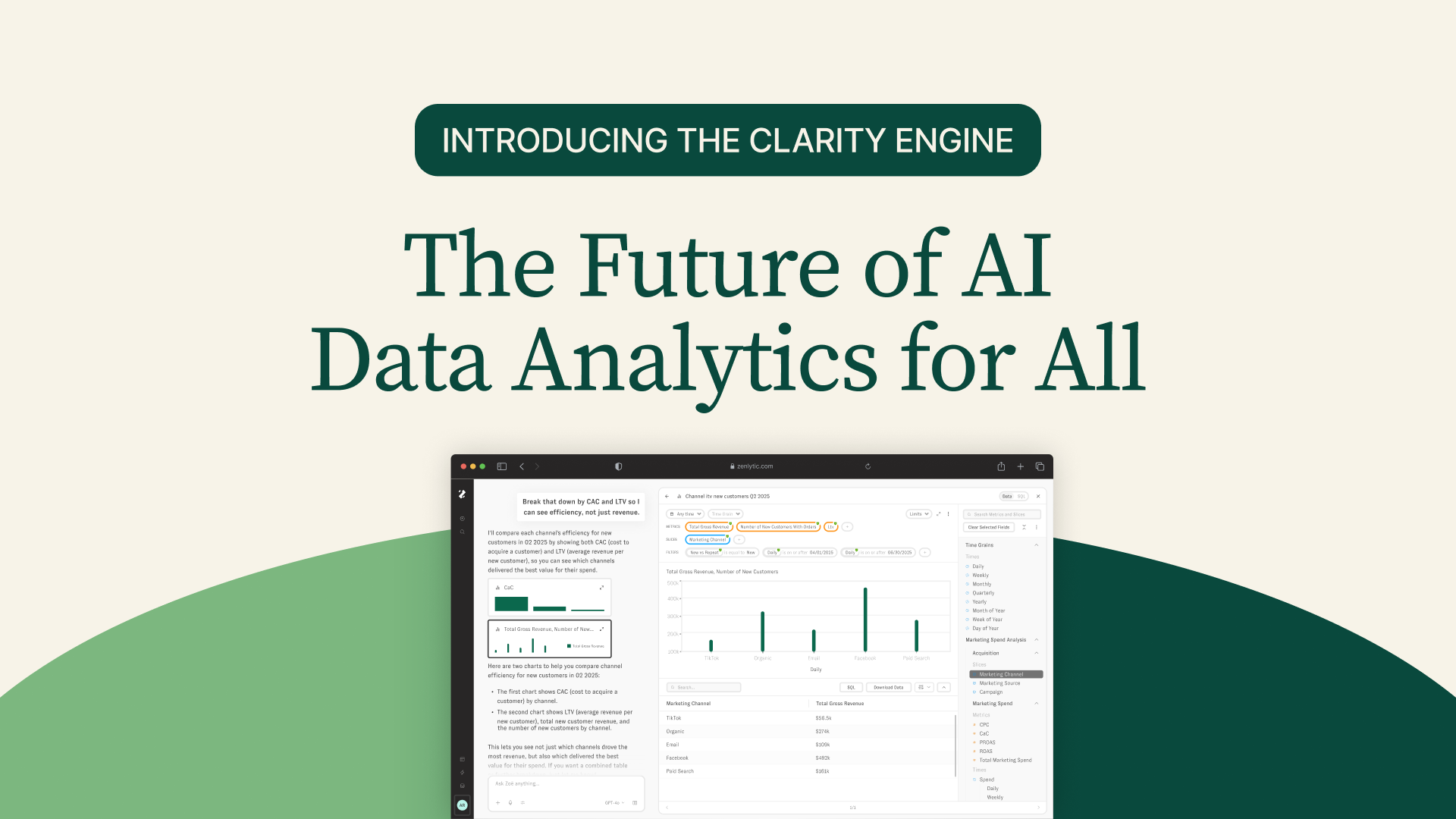
The Future of AI Data Analytics for All: Introducing the Clarity Engine
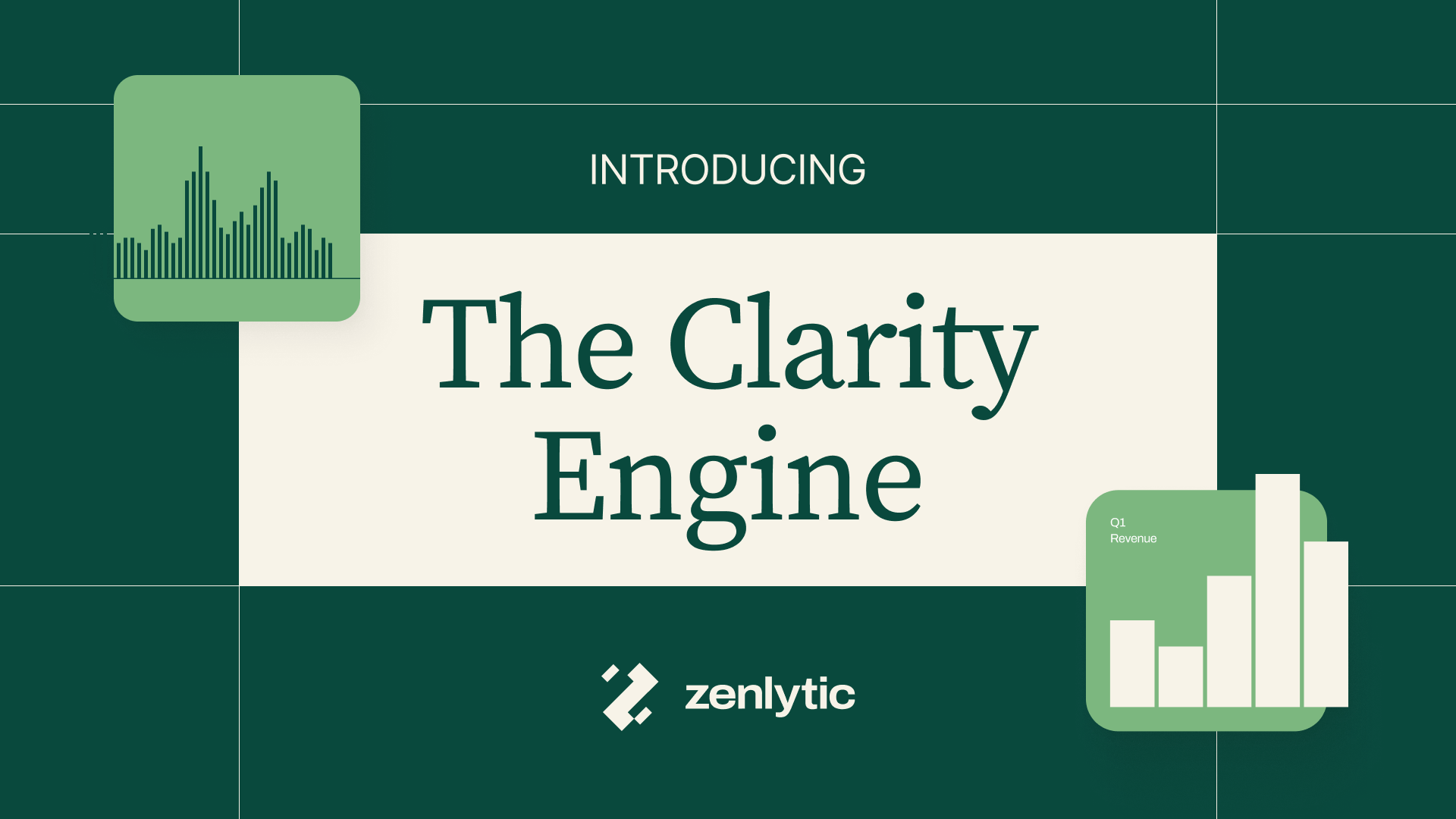
The Flexibility of SQL Meets the Trust of a Semantic Model: Introducing the Clarity Engine

Zenlytic at Snowflake Summit 2025 Recap: Live from San Francisco
Snowflake Summit 2025 took over the Moscone Center in San Francisco last week, and Zenlytic was right in the middle of all the action. Whether you met us on the expo floor or over a glass of sparkling champagne at Zoë Bar, one thing was clear: the AI analytics wave isn’t just coming... It’s here. And Zoë is the differentiator.

Business Intelligence and the Einstein Loop: Breaking Free from the Same Old, Same Old
Let’s put intelligence back in business intelligence that actually works for business users. Let’s give them intelligent analytics.

Introducing Intelligent ✨ Workflows: Data workflows powered by an AI data coworker
With intelligent workflows you can prompt and orchestrate workflows to accomplish simple, complex, and multi-step actions as your data coworker. Leveraging Zenlytic's complete intelligent analytics platform—with dashboards, reports, data explorer, and cognitive layer—analyzing data has never been more powerful.

Zenlytic Achieves Google Cloud Ready - BigQuery Designation
By earning this designation, Zenlytic has proven that our Intelligent Analytics platform and Zoë, our AI data coworker, have met a core set of functional and interoperability requirements when integrating with BigQuery.

Hype Alert: Not All AI-Enabled Business Intelligence Makes the Grade
John Santaferraro, CEO and Head Research Analyst at Ferraro Consulting, published five best practices to maximize impact of AI for BI. He also provides the foundational AI enablers for Business Intelligence.






.png)



